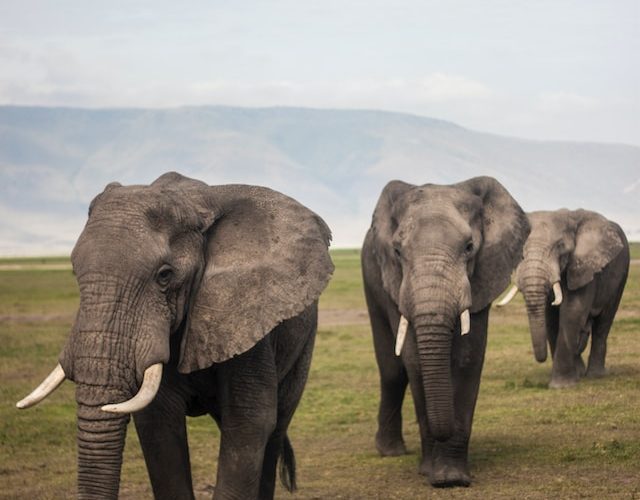Introduction: In the vast and diverse realm of animal behavior, few creatures captivate us quite like elephants. These majestic creatures, renowned for their intelligence and social dynamics, have long piqued the curiosity of scientists. While much is known about their foraging patterns and communication rituals, the sleeping habits of elephants have remained a fascinating and relatively unexplored topic. Recent scientific research has shed light on this intriguing aspect of their lives, revealing surprising insights into how these gentle giants rest and rejuvenate.
The Need for Sleep: Elephants, known for their immense size and strength, have an extraordinary energy expenditure. It is estimated that adult elephants consume up to 300 kilograms of food daily, requiring them to rest and restore their energy levels adequately. Sleep plays a vital role in their physiological well-being, facilitating memory consolidation, muscle repair, and hormonal regulation.
Sleep Duration and Patterns: While humans typically require 7 to 9 hours of sleep per day, elephants differ significantly in their sleep patterns. Field observations combined with sophisticated tracking devices have revealed that elephants spend an average of 2 to 3 hours sleeping each day. However, this sleep is not consolidated into a single, uninterrupted period like our own. Instead, elephants engage in brief bouts of sleep, usually lasting no longer than 30 minutes to 2 hours, throughout both day and night.
The Importance of Napping: Unlike most mammals, elephants have evolved a unique adaptation called “sway sleeping” to compensate for their fragmented sleep. During these shorter sleep episodes, elephants stand upright, with their heads and trunks hanging loosely. They exhibit a characteristic swaying motion, which helps them maintain balance while dozing off. This behavior ensures that they can rest while remaining alert to potential dangers in their surroundings, such as predators or other threats.
Safe Havens for Slumber: Elephants are highly social animals that thrive in tight-knit family units called herds. It has been observed that when elephants choose a sleeping spot, they often do so collectively, with the entire herd congregating in a secure location. Such areas are typically chosen for their isolation, dense foliage, and limited human presence, ensuring minimal disturbances during their resting periods.
Unanswered Questions: While recent research has illuminated several aspects of elephant sleep, many questions still remain. Scientists are actively exploring the specifics of the sleep cycle, the role of dreams in their sleep patterns, and the potential impact of environmental factors on their rest. Furthermore, the influence of captivity on elephant sleep is an area that requires further investigation.
Preserving Elephant Sleep: Understanding the sleep patterns of elephants is not merely an academic pursuit but also crucial for their conservation and welfare. Human activities, such as deforestation, poaching, and habitat encroachment, disrupt the natural sleep patterns of elephants, leading to increased stress and diminished overall health. As we strive to protect these magnificent creatures, it is imperative that we acknowledge the importance of preserving their undisturbed sleeping habits.
Conclusion: The enigmatic sleep habits of elephants continue to enthrall scientists and animal enthusiasts alike. Through diligent research and observation, we are gradually unraveling the secrets of their slumber. Recognizing the significance of sleep for elephants not only deepens our understanding of their biology but also underscores the need to safeguard their natural habitats. As we delve further into the sleeping habits of these gentle giants, we inch closer to appreciating the wonders of the animal kingdom in all its splendor.












